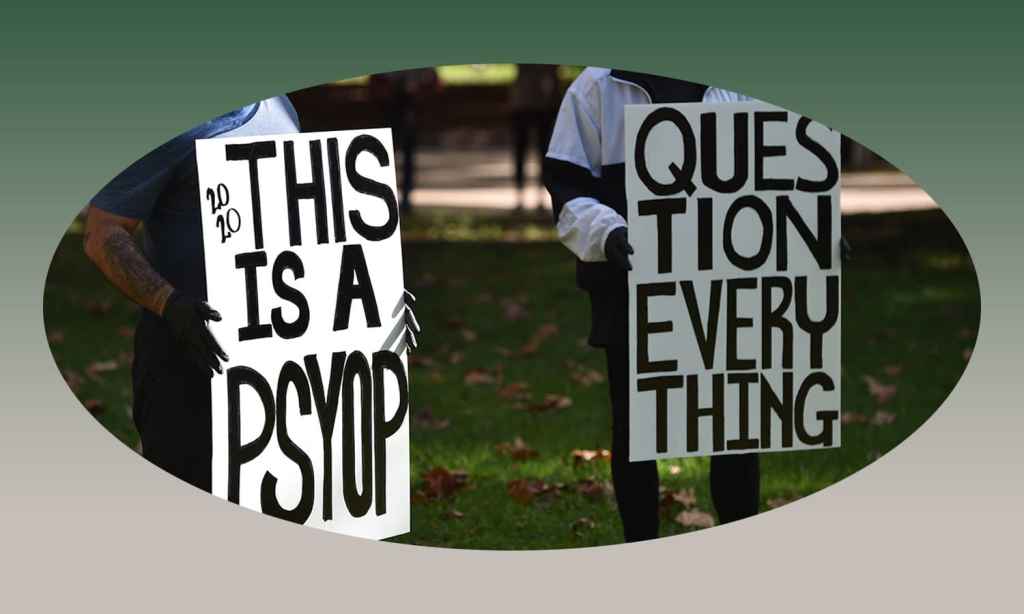Social media is well known as a breeding ground for conspiracy theories and misinformation, a trend that has been particularly evident over the last 18 months of the pandemic.
While Twitter, Instagram and Facebook have all taken measures to try to limit the spread of COVID and vaccine-related misinformation, and have even banned users who have continuously breached the community guidelines, the platforms are still rife with people united in their disbelief that COVID isn’t real and their firm belief that people should decline the vaccine for it.
Now, a petition is circulating on change.org to ban influencers on Instagram if they promote anti-vaccination, with the campaign specifically targeting Anna Rose Richards and Taylor Winterstein who, according to the organiser, “use their large social media platforms on Instagram to encourage their followers to reject mask-wearing, ignore medical advice from health care professionals, use unproved COVID ‘cures’ like Ivermectin and encourage natural immunity.”
The petition has so far garnered over 5200 signatures.
Social media sites have been a meeting point over the course of the pandemic for people with alternate theories about the pandemic and other events throughout history, with the QAnon movement in particular picking up steam through the platforms as the companies frantically tried to counteract the spread of conspiracies.
The ease and swiftness with which like-minded people can connect through social media has proven particularly problematic during COVID as anti-vaxxers and anti-lockdown protestors have been able to orchestrate large scale protests using the sites.
Conversely, experts have suggested that people who post vaccine selfies, or ‘vaxxies’, can actually encourage their peers to get the jab, with Dr Katie Attwell, an expert in vaccination uptake from the University of Western Australia, telling the ABC that social media is a great tool for normalising the jab in a personal, real-world setting. Attwell also explained how selfies can be a non-threatening way of making vaccination a social norm, without having to confront someone.
Of course, some people also use the sites to promote ‘holistic’, ‘alternative’ and unproven “cures” for or protection against COVID-19, such as Ivermectin, with Westmead Hospital reporting it has seen several patients admitted after trying to treat the virus with substances including hydroxychloroquine, disinfectants, bleach and alcohols.
Chatting to The Latch earlier in 2021, ahead of her scheduled talk at the now cancelled VIVID Sydney Festival with Dr Norman Swan, author Sarah Wilson explained why wellness influencers had been even more susceptible to potentially dangerous ideas about COVID and the vaccine for it.
“The wellness industry has always been about questioning the status quo and questioning the interests of industries such as sugar, oil or the big pharmaceutical companies,” she said.
“Prior to COVID, there was already a lot of 5G technology questioning, and I think questioning the information that we’re given is really important. The problem, or part of it, is that the wellness industry was a very coalescing kind of tribe — very connected with social media.
“So, when COVID happened and we all went into isolation, it was already there and once there was that spark, the whole thing kind of burned through the whole wellness industry because they were already on these Facebook groups. So, a lot of people went down the rabbit hole via these algorithms that are already in place.”
Indeed, in August, Facebook was tasked with removing hundreds of accounts that it said were involved in anti-vax disinformation campaigns operated from Russia.
The platform discovered that an influencer marketing agency called Fazze had been offering money to various influencers to spread false claims about the risks associated with the Pfizer vaccine.
The discovery led to 65 Facebook accounts and 243 Instagram accounts being disabled for violating their policy against foreign interference.
However, according to Forbes, social media platforms have no real interest in completely stamping out the spread of misinformation entirely because it is not only time-consuming but results in higher engagement.
“Actually, the platforms profit from it because the more outrageous the content the more people interact with it – this type of ‘engagement’ is what the platforms are looking for; people reacting to things, technology and telecommunications analyst Roger Entner told the publication. “It doesn’t matter if it’s true or false as long as they engage.”
So, given the fact that social media sites are unlikely or unwilling to eradicate the spread of misinformation entirely, and users are equally unlikely to stop sharing their opinions on the pandemic and COVID vaccines, it comes down to the individual to ensure they are getting their info from trusted sources.
While it’s great that we live in a world where people can think critically and draw their own conclusions about things, ultimately trusting our scientists and medical professionals will be what makes lockdowns and mask-wearing an (eventual) thing of the past.
Read more stories from The Latch and subscribe to our email newsletter.







